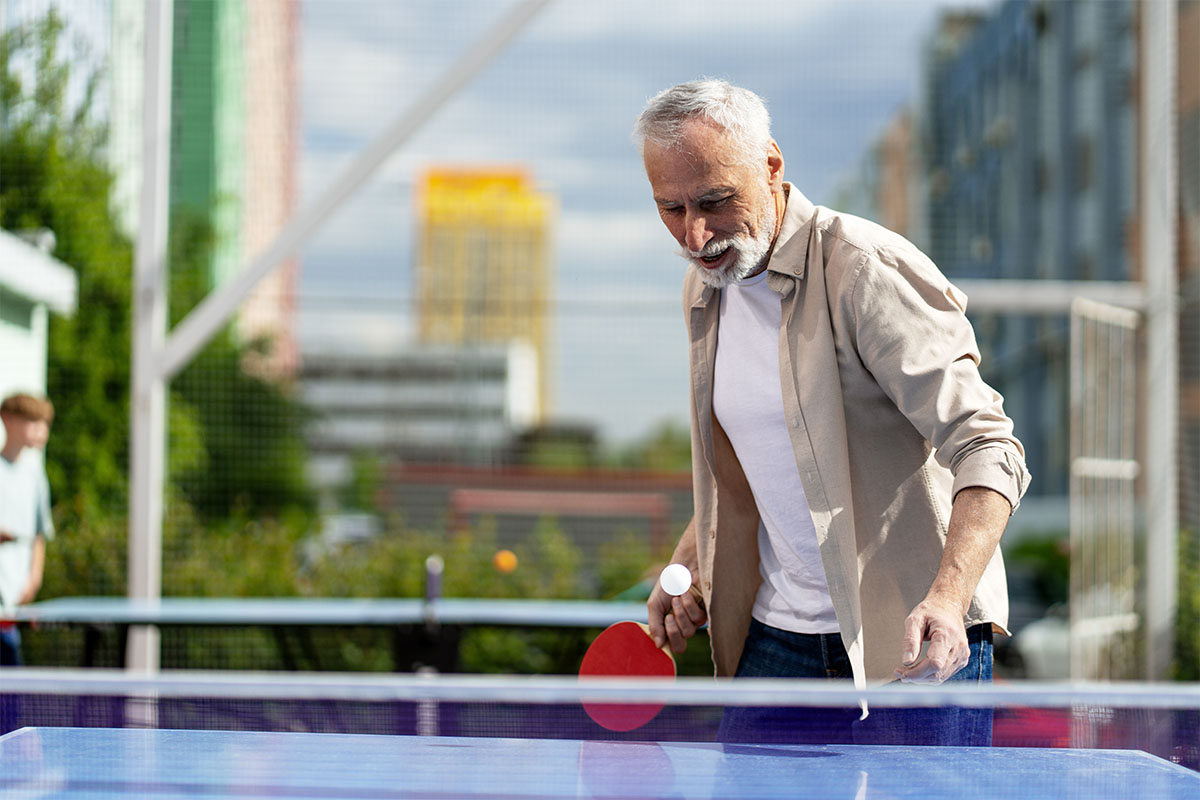Ping Pong for Parkinson’s: A Fun and Functional Path to Better Health

Ping pong—also known as table tennis—is often seen as a fast-paced game played in rec centers, basements, or during friendly competitions. But did you know that this fun, accessible activity is also gaining recognition as a therapeutic exercise for individuals with Parkinson’s disease?
More than just a casual pastime, ping pong offers a unique combination of physical, cognitive, and social benefits. For people living with Parkinson’s, it can serve as a powerful and enjoyable tool to improve quality of life. Engaging in regular table tennis sessions can enhance hand-eye coordination, balance, core strength, and reaction time. The game’s repetitive, rhythmic movements may also support functional mobility and make it easier to carry out daily tasks like walking, reaching, or grasping objects.
Additionally, ping pong provides meaningful social interaction. Whether you’re playing a casual rally or joining a community tournament, the sport encourages connection, laughter, and a sense of belonging—important elements in managing the emotional challenges often associated with Parkinson’s.
What Does the Research Say?
Scientific studies are beginning to validate the therapeutic value of table tennis in Parkinson’s care. A 2020 pilot study published in Clinical Parkinsonism & Related Disorders found that a structured table tennis program was relatively safe and may help improve motor function and activities of daily living in participants with Parkinson’s disease. The research supports the idea that targeted, enjoyable physical activity can make a real difference.
Another 2020 study in the Archives of Rehabilitation Research and Clinical Translation highlighted additional benefits, including enhanced balance and improved mental well-being. These findings suggest that table tennis may not only help with physical function but also provide a mood-boosting, confidence-building outlet for individuals navigating the progression of Parkinson’s.
How to Get Started
If you or a loved one is living with Parkinson’s disease, consider exploring local opportunities to play ping pong. Many community centers, gyms, and senior wellness programs now offer inclusive table tennis sessions designed for people of all abilities. These programs are often led by trained staff or volunteers who understand how to modify gameplay and create a safe, welcoming environment.
For those seeking additional support and resources, several nonprofit organizations are leading the way in bringing table tennis to the Parkinson’s community:
Helpful Resources
- Ping Pong Parkinson – A nonprofit dedicated to promoting table tennis as a therapeutic activity for people with Parkinson’s. Visit pingpongparkinson.org to find events and support networks.
- Ping Pong for Good – A global initiative that uses table tennis to boost brain health, mental wellness, and overall vitality. Learn more at pingpongforgood.org.
Final Thoughts
In the journey of managing Parkinson’s disease, every step toward movement, connection, and joy matters. Ping pong offers all three—wrapped up in a fast-paced, laughter-filled game that’s easy to learn and fun to play. Whether you’re picking up a paddle for the first time or returning to an old hobby, this simple sport could be a powerful part of your wellness plan.
References
- Inoue K, Fujioka S, Nagaki K, et al. Table tennis for patients with Parkinson's disease: A single-center, prospective pilot study. Clin Park Relat Disord. 2020;4:100086.. PubMed
- Olsson K, Franzén E, Johansson A. A pilot study of the feasibility and effects of table tennis training in Parkinson Disease. Arch Rehabil Res Clin Transl. 2020;2(3):100064. PubMed
- Written by Ziya “Z” Altug, PT, DPT, MS, DipACLM, OCS
Donate Today,
Change Lives Forever
PCLA is powered by generous contributions from people like you.
Please consider donating today so we can continue to provide critical support to those impacted by Parkinson’s.

